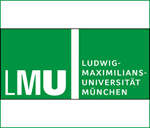Dr Susanne Hennig
No more applications being accepted
Funded PhD Project (Students Worldwide)
About the Project
Group: Prof. Dieter Braun, Systems Biophysics, LMU Munich
Website: http://www.biosystems.physik.lmu.de/
Project:
How did life originate on Earth? We pursue non-equilibrium drivings to understand how the first genetic information could establish itself on Earth. We start from what geology, chemistry and astronomy tells us about the beginning of Earth and the first biomolecules and want to end towards the robust replication of RNA sequences and the creation of the first translation machinery. In short: we want to recreate the origin of life in the lab.
Topics could include the generation of geological pH gradients, triggering catalytic function in hydrogels of RNA created by thermal traps, selection and replication of DNA with mutagenitc PCR in thermal traps or cooperative organization of random RNA oligomers in size-selective traps.
Requirements:
We search for highly talented interdisciplinary students with a background ranging from physical chemistry, biophysics and biochemistry. Candidates work towards a PhD in biophysics (3-4 years) and is eager to combine experiments with theoretical models (Comsol, ODEs). Requirements are a Master in above disciplines with at least one year of lab experience. The PhD student will be funded by the Simons Foundation in the Origins of Life, a worldwide network working on the topic with eminent scientists of the field (Jack Szostak, Gerald Joyce, John Sutherland, Matt Powner, Irene Chen, Dimitar Sasselov). So we can very well work in the future between the disciplines. Starting date is around summer 2016.
All candidates have to apply via CeNS’ online application tool. Other forms of application will not be accepted.
Funding Notes
The PhD position is fully funded, according to the German salary system TV-L. No tuition fees.
30 vacation days.
Up to 14 months compensated parental leave possible.
English and German classes are offered by the university.
References
Our most recent publication is "Heat flux across an open pore enables the continuous replication and selection of oligonucleotides towards increasing length", Moritz Kreysing, Lorenz Keil, Simon Lanzmich and Dieter Braun, Nature Chemistry (2015) doi:10.1038/nchem.2155, but we have previously published in high ranking journals (PNAS, Physical Review Letters, JACS, Angewandte).

 Continue with Facebook
Continue with Facebook

